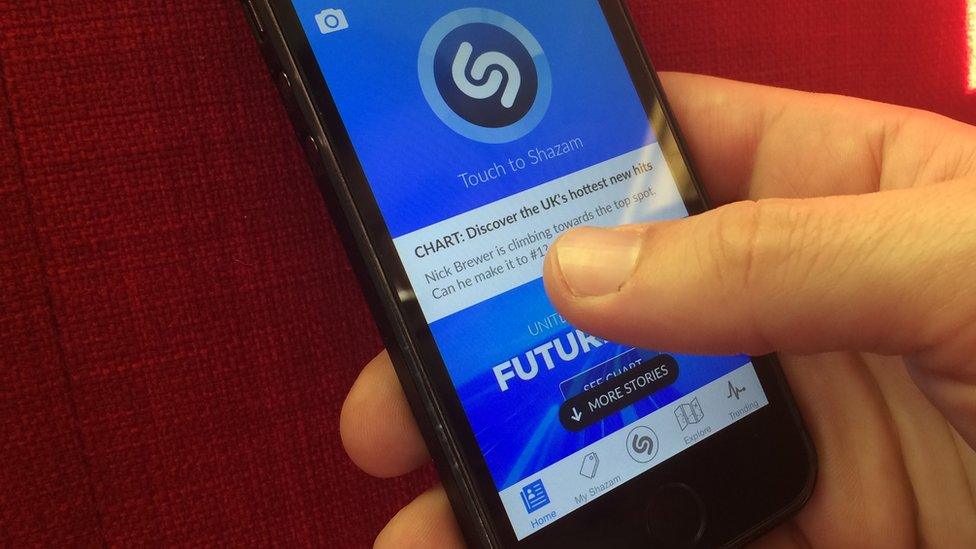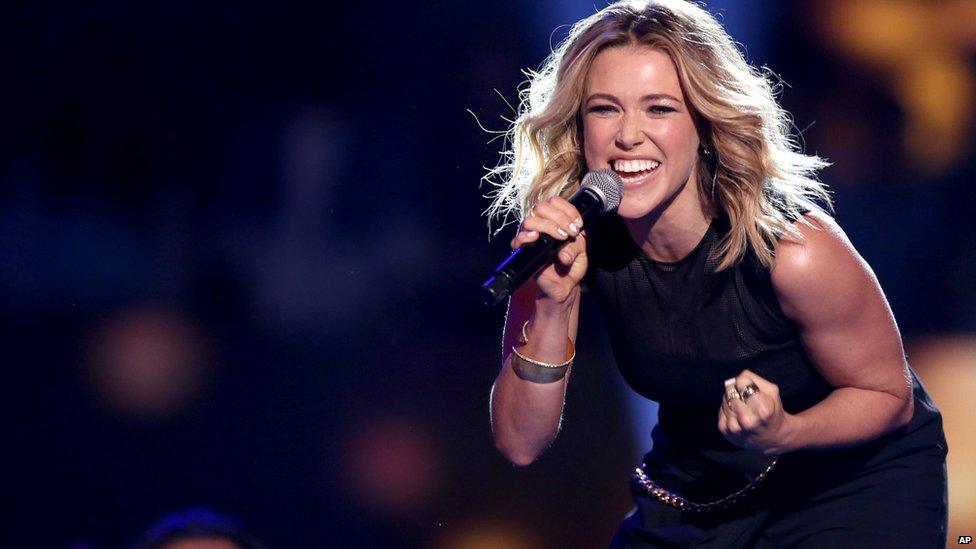This is how Shazam is shaping the music industry
- Published

"We're a wonderful connector between fans and artists," Daniel Danker says.
Shazam's chief product officer is talking to Newsbeat about music's relationship with technology.
"People don't Shazam things they don't like. They do it to the music they like but don't recognise."
Rachel Platten's Fight Song has a lot to thank Shazam for. After the song was played on one American radio station it was shazamed so much she had a record deal within 72 hours.
"It's really cool to go back in time looking at artists like Rachel Platten where we saw the spark," Daniel says from his office in San Francisco.
"It just takes a small handful of Shazam's for our algorithm to detect a change.

Rachel Platten's Fight Song has since been number one in the UK
"We look closely at those changes and, as you can see, the labels do the same.
"In Rachel Platten's case it became career making."
There is no denying how important the data Shazam collects is to the music industry; in recent years it has become almost an A&R tool for record labels and radio stations.
It can help predict songs that will be future hits from how many "shazams" a particular track is getting.
Warner Music Group became the first label to sign an official deal with the music app last year.
This means it can see the data Shazam has on any of its artists and the label has also created a smaller division just for artists found through Shazam.
This is how a song gets to number one in the UK charts., external
It seems hard now to see another company being able to come along and challenge Shazam. The company name has now become the verb for finding out what a song is called and who it is by.
"We are really grateful for that, our users have done it and now we hear the artists saying, 'Hey I shazam'," Daniel says.
The app is constantly evolving. They've recently introduced the ability for artists to share the music they're listening to with their fans.
"Essentially what we're trying to create is the world's biggest fan network," Daniel says.
"Artists have built up a huge basis of followers inside of Shazam, as fans discover their music. Pitbull, for example, has over 46 million followers."
It's not just for record labels to find new signings or for pop starts to share what they're listening to though.

Demi Lovato used it to determine where she would go on tour in Europe by asking her fans to Shazam wherever they were.
"She chose her tour locations based on the places she was Shazamed the most," Daniel explains.
"She got over two million Shazams in a matter of 24 hours."
But this is not to say Shazam is the only thing that matters when it comes to music discovery or whether an artist does well.
Streaming, the charts and radio play are all as important as they ever were, but it is interesting how this innovative piece of technology is certainly challenging them for influence.
Follow @BBCNewsbeat, external on Twitter, BBCNewsbeat, external on Instagram and Radio1Newsbeat, external on YouTube and you can now follow BBC_Newsbeat on Snapchat